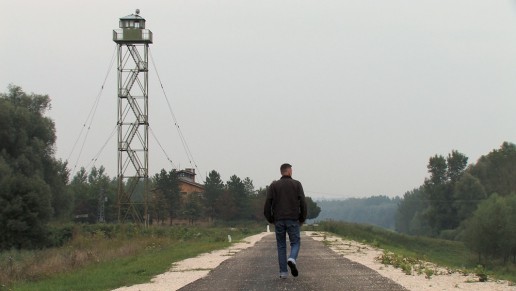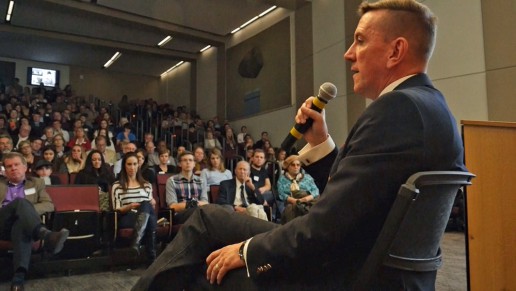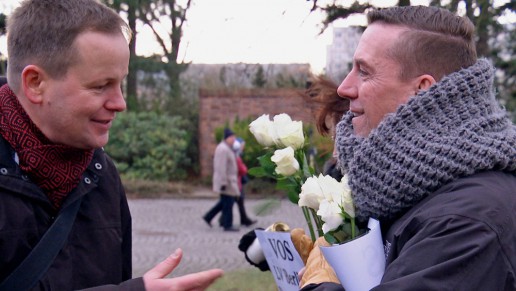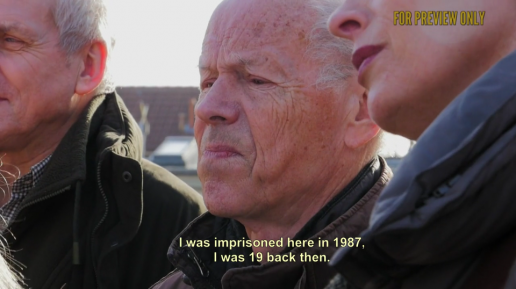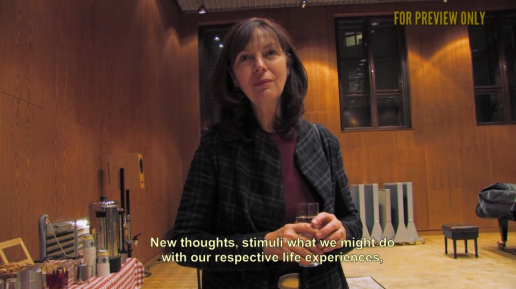Mario Röllig
Being gay, resilient, young and conservative, he became one of the youngest and most in-demand witnesses to the atrocities of the GDR.
Mario Roellig, born 1967
was raised in a family loyal to the state and to the ruling SED party. Mario worked as a waiter at the restaurant in the transit zone of the Berlin Schoenefeld Airport in the GDR. In 1985, on a vacation in Budapest, Roellig began an affair with an older male politician from West Berlin. After meeting more-or-less secretly in East Berlin and in Budapest, Roellig decided to flee to the West but got unlucky and, in 1987 was detained for several months in the Stasi detention centre in Berlin Hohenschoenhausen.
Six months after his release
the West German government purchased his freedom and he received permission to leave the GDR. In 1999 he ran into his former Stasi interrogator and suffered a nervous breakdown. Today he guides groups through today’s memorial site in the former Stasi (GRD State Security Services) prison where he was once incarcerated. Roellig speaks to school classes all over Germany and has been invited to universities abroad. He thinks he has told his story more than one thousand five hundred times.
Roellig is not an intellectual
Yet he claims that his personal history made him become a political person. He often talks about ‘freedom’ and the advantages of capitalism. Roellig takes part in picket lines where he confronts GDR aficionados – and is equally confronted by people who still believe in social utopias and communist and socialist models of society that go beyond the current German social market economy. These people also claim they are talking about freedom, yet somehow they seem to speak very little about the former GDR.
The GDR Complex
unveils a strange atmosphere of monologues, misunderstanding and failures to communicate – as seen from the perspective of Mario’s very personal story, which unfolds throughout the film. He still awaits an apology from his tormentors while simultaneously being ridiculed by some hardliners who accuse Mario of playing the ‘victim card’.
Today
more than 25 years after the fall of the Berlin Wall, the fight for the prerogative of the historical interpretation and political relevance of the former GDR (German Democratic Republic) seems more intense than ever. The process of coming to terms with the past has just begun.
